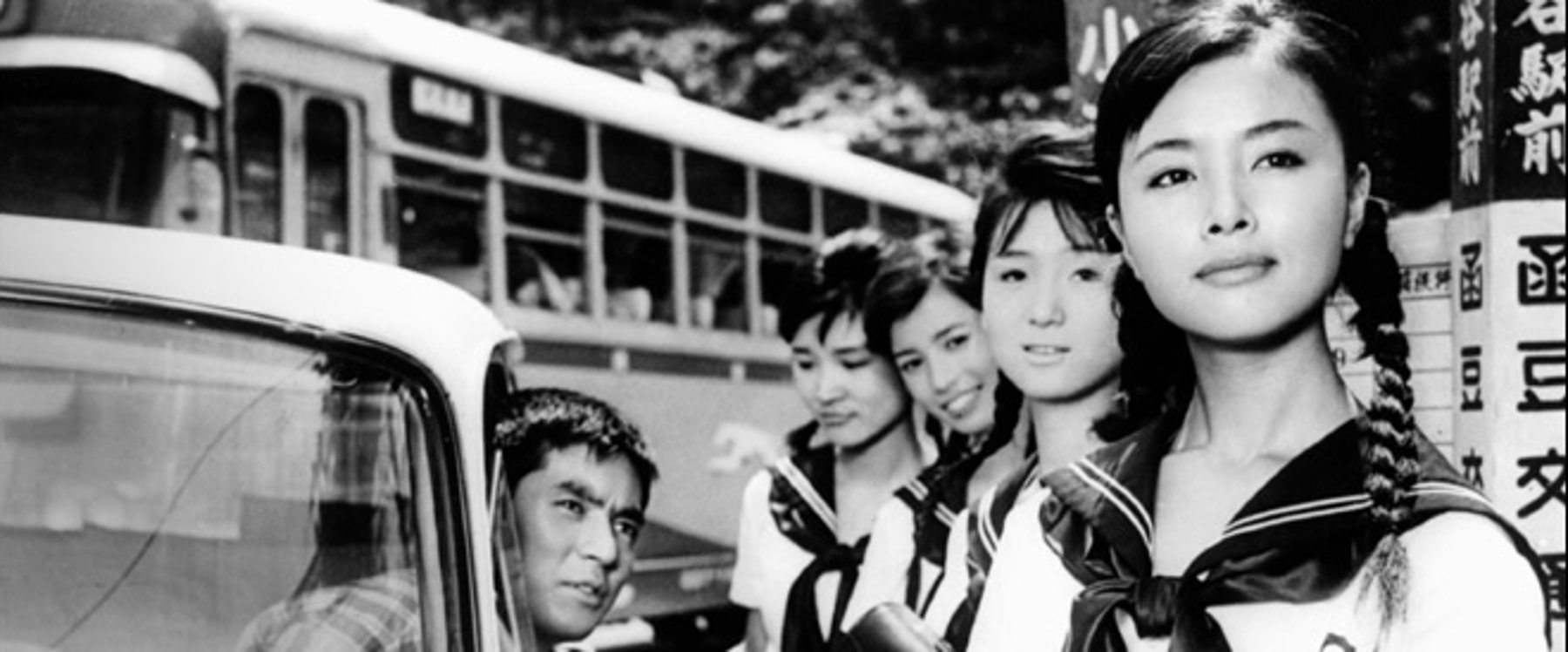This film is about nothing but a hectic pace of modern life. Crisply photographed, edited and directed, Yuzo Kawashima’s Hakone-Yama (1963) drives you through the world of highly-charged competition among corporations. It is fast, loud, vulgar, and mean. It is loosely based on the actual event at the time. It is timely, sensational and dirty. Most of all, it is energetic.
Since 1950s, Hakone had been the stage for fierce corporate competition. The place was and is the most celebrated resort area in Japan, and, being located within the reach of train ride from Tokyo, the most popular. Since the travel-business conglomerates wanted to monopolize the business in the area, they laid highways, built hotels after hotels, created parks, owned express trains, and operated buses and cable cars. Seibu-group and Odakyu-group, modern-day Capulets and Montagues, each had their own line of business and their employees were fiercely loyal. While their bus drivers and conductors physically and verbally fought each other at the bus terminals, their directors displayed the urbane corporatism in the Congressional committee hearings. Then another, much larger conglomerate, Tokyu, one of the most powerful train operators and real estate developers in Kanto area, decided to eat much larger piece of the pie.
In the film, the names of these conglomerates were slightly altered but obvious nonetheless. But the main action takes place in the much smaller venue. Two (fictional) traditional Japanese style bed-and-breakfast inns in Hakone were also in fierce competition. They had been so for more than 150 years. Chieko Toyama (Tokyo Story) of Tama-ya has not been in speaking terms with Shuji Sano (There Was a Father) and Kuniko Miyake (Ohayo), the owner couple of Wakamatsu-ya, and Yuzo Kayama and Yuriko Hoshi are our Romeo and Juliet. Kayama, a young handyman of the Tama-ya inn, is sharp and intelligent, but under-educated because of his complicated background. Hoshi, an opinionated young high-school girl, is gradually attracted to Kayama, and finds her parents stubbornness old-fashioned. Then this balance of antagonism between two Inns changes when Tama-ya loses one of its building due to fire. Furthermore, one of the travel conglomerates wants to recruit Kayama. Suddenly, the future of Tama-ya is uncertain.
Oh, you mean, the next trend will be to live in the slower pace, in this age of hectic pace. Kouemon (Shuji Sano)
Although the film loses its initial velocity in the latter half, it is still driven by the group of superb casts. Shuji Sano has never been more obnoxious than this amateur historian/inn owner. He is ultimately an scheming opportunist and so is his wife, Kuniko Miyake. Eijiro Tono, playing the hot-blooded king of Tokyu conglomerate, is at the top of his form. As an insanely vulgar capitalist, he sputters his words and spits his commands like a cockroach in hot tropics. However, he is so real and believable. He even gargles as he drinks tea! But the winner in this film is Chieko Toyama. Most of you remember her as a soft-spoken aging mother in Ozu’s Tokyo Story. Here her manners are similar, but fundamentally different. Her portrait of a mild-mannered stubborn old hag, with all the melodramatic gestures with delicate subtlety, excels anything I have ever seen. It is so good that you just love this old faker.
This film is not yet made into DVD even in Japan. But if you find this film in the festival or in local theater, don’t miss it. Just looking at those insane characters is worth an admission.
Hakone-Yama (箱根山, 1962)
Directed by Yuzo Kawashima
Written by Toshiro Ide and Yuzo Kawashima, Based on the novel by Bunroku Shishiko
Cinematography by Rokuro Nishigaki
Starring Yuzo Kayama, Yuriko Hoshi, Shuji Sano, Chieko Toyama, Kuniko Miyake
Toho
Copyrighted materials, if any, on this web page are included as “fair use”. These are used for the purpose of research, review or critical analysis, and will be removed at the request of copyright owner(s).

